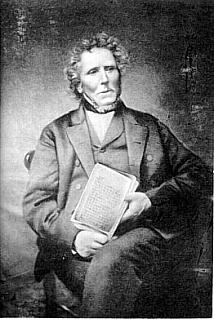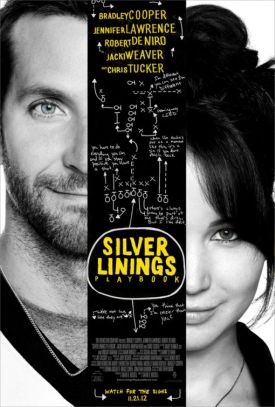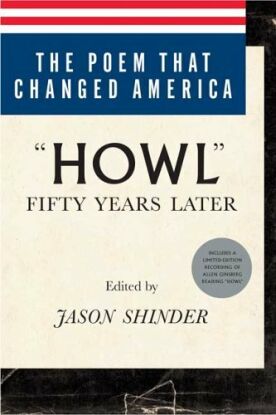A Bias Against Honor
From The New CriterionJames Bowman Lindsay, Inventor
Every now and then, the nice people at Google kindly let me know when someone I have never heard of mentions my name on the Internet — or, for that matter, that of any of the world’s many other James Bowmans, including the inventor of the incandescent lightbulb (What? You thought it was Thomas Edison?), the father of President Obama’s closest advisor, Valerie Jarrett, or the eminent British counter-tenor, who must have one of the most extensive discographies of any performing artist in the world. One such notice arrived the other day, linking to a micro-blogging website called Identi.ca on which one D. Jason Fleming had delivered himself of the following opinion: “The more I read James Bowman, the more evil I am convinced he is. Intelligent, but vile. I just can’t decide whether he knows it.” Gosh! Not only do I not know it but, at the risk of discourtesy to Mr Fleming, whoever he may be, I don’t believe it either.
He offered no further elaboration of his opinion, no single example of my vileness — or anagrammatic evilness — just the bald assertion. That’s micro-blogging for you, I guess. He may, of course, have meant one of the other James Bowmans, but I have a bad feeling that he must have meant me. I don’t know of any other James Bowman who is writing on a regular basis. So there’s that. There is, or was until recently, a blogger in Chicago, but he goes by Jim and, as a devout Catholic, could hardly fit the description anyway. Also, it has to be said that I am on record in my recently published book, Media Madness: The Corruption of Our Political Culture (Encounter, 2008) as deploring the tendency to moralize political argument — which is to say, to call people you disagree with “evil.” It hadn’t occurred to me before, but that might be enough by itself to get me labeled as “evil.”
If it is, indeed, I whom Mr Fleming meant to call evil, I can’t help wondering why he goes on reading me? For that is the clear implication of the construction, “The more I read. . .” Well, then, I want to say to him, why not just stop reading? Could it be that the gentleman has some kind of compulsion to read the works of those whom he regards as evil? That would at least set him apart from others in the currently booming business of sniffing out evil among the critics, observers and commentators of our time, since most of them are content to catch just a faintest whiff of the alleged evil from a great distance, and without themselves ever sticking their noses into the authors’ noisomely evil works. Maybe, having willingly exposed himself to so much evil, Mr Fleming will eventually find it to have been contagious and so end up among the evil ones himself. Has he ever thought of that? Just look at what happened after the late Pope Paul VI did away with the Index Librorum Prohibitorum in 1966.
As I pointed out in the book mentioned above, this enthusiasm for finding evil in heterodox political opinions owes something to the media’s pretense of “objectivity” — which allows them to treat the messy partisan squabbles inevitably occasioned by political relativities in absolute terms — as well as to the “progressive” habit of mind which has inherited from Marxism the belief in a utopian end-point to political time. The corollary to that belief is that anything which takes us off course on our way to perfection must be, if not evil, at least so grievously and willfully mistaken that it is indistinguishable from evil. Without some such belief, amounting almost to a certainty, Mr Sean Penn’s opinion, expressed at the most recent Academy Awards ceremony, that the grandchildren of those who disagreed with his views on the subject of gay marriage would be ashamed of them would have sounded like the ravings of a lunatic. In the same way, P.G. Wodehouse once got a lot of comic mileage out of his “Heralds of the Red Dawn” — to whom Bingo Little was unfortunately attached — who would say, “Come the revolution, Comrade. . .”
Such quasi-religious fervor, as I noticed in Media Madness, has been creeping into American politics even as our political differences have been narrowing over the past 20 years or so, and it seems only to have gathered momentum since the election of President Obama. During the summer, as members of Congress returned to their districts and attempted to hold “town hall meetings” on the subject of the President’s proposals for the reform of the health care system, the media were shocked to discover how high the feelings on both sides of this issue were. When some stray protestors — perhaps taking their inspiration from the frequent comparisons of Mr Obama’s predecessor to a certain German leader of the 1930s and ‘40s — turned up at these rallies with signs bearing the emblem of the swastika, Mrs Nancy Pelosi, Speaker of the House of Representatives compared them, and by implication all those who opposed the President’s reforms, to Nazis.
Nazis equal evil, in case you didn’t know. The President himself spoke of the protestors as a “mob” and of their views as “fishy.” Always to be relied upon as the voice of reason and moderation, the Nobel prize-winning economist Paul Krugman wrote in The New York Times that “the driving force behind the town hall mobs is probably the same cultural and racial anxiety that’s behind the ‘birther’ movement. . .It’s a strategy that has played a central role in American politics ever since Richard Nixon realized that he could advance Republican fortunes by appealing to the racial fears of working-class whites.” Nixon equals evil too, by the way. In fact, he is the ur-evil in American politics, according to the media’s way of looking at things. But even Nixon might have blushed at that word “probably”? Such a shoddy style of argument that doesn’t even bother to attempt to make the connection it relies on but just sticks in a “probably” to cover a mere assumption would not be tolerated if our national dialogue had not been corrupted by the kind of factitious moralism that lies behind what is commonly called media “bias.”
Bias. So obvious when it is against you, so invisible when it is identical with your own. I have always assumed that this is why the left don’t see it in the media — or else they believe (or profess to believe, anyway) that the media’s bias is towards the right. All it has to be is to the right of them for it to become visible to such people. And, of course, they have the myth of objectivity to rely on to de-relativize their own position vis-a-vis that of the biased ones. Just as only white people can be racist (what a rocket Rush Limbaugh got from the media for using the term of Sonia Sotomayor!), so only conservatives can be biased. Put so baldly, the proposition might cause progressives to shy away from it, but it is the logical conclusion of all their moralizing.
But let us not discuss the question of bias only in the abstract. Let us look at a concrete example not obviously involving good people and bad people, which I have taken from an article in The Washington Post by Keith B. Richburg and Carrie Johnson. Titled “Victims’ Families United in Tragedy, Divided in Views,” the article tells us that
As the Obama administration wrestles with closing the military prison in Cuba, and revising other Bush administration policies on terrorism, it must navigate a range of viewpoints, from human rights advocates to overseas allies and members of Congress. One of the trickiest constituencies is the diverse community of family members of those killed in terrorist attacks, a group with often conflicting opinions. . . The attacks have politicized thousands of family members, creating an influential, emotional and often amorphous lobbying group on questions from the treatment of suspected terrorists to the redevelopment of the World Trade Center site in Lower Manhattan. Their views run from staunchly conservative to solidly liberal.
Surprising news! A cross-section of Americans, united only by the fact that they have lost loved ones in terrorist attacks, have a range of political views including views on what to do about terrorism. Who’d have thought it?
The point is for the paper to stress that segment of the terrorist-victim political spectrum — its size, either in percentage terms or absolute numbers, unknown — which is “solidly liberal.” There’s no news in the victims who want to give the terrorists a good biffing and aren’t too particular about their rights, but in America, it still (just about) counts as news when the victim of a crime tells some obliging reporter that he would prefer that the international criminal and his associates be given the benefit of every doubt and due process and treated with respect, even compassion. This is not true everywhere. In Britain, the home secretary, Jack Straw, recently allowed the terminally ill Ronnie Biggs — a man who severely injured a guard in “the Great Train Robbery” way back in 1963, then escaped to Brazil for decades before being captured and sent to prison — to go home to die. The grandson of his victim was quoted in The Daily Telegraph as saying, “I wish Ronnie Biggs was dead. He should have been left to rot in jail. Biggs is a terrible man and he should have served his last days in jail, but that is typical of our government. Letting criminals like him out early is a disgrace. He made a mockery of our justice system for 30 years and now he is out. He should have died behind bars.” I don’t know quite how, but I think it makes a better story that way. I guess it just sounds more like a genuine human emotion.
But of course the mild and forgiving types are real enough too, and the bias of the news itself makes them more newsworthy than the victims who are keen on having terrorists rot in jail. In the Post story, the conservative end of the spectrum is only there as camouflage, an earnest that both sides are being reported, though the interest of reporter and audience alike is all on one side, partly because it stands as a silent rebuke to the argument from honor, assuming anyone would still be capable of making it, that these victims must be avenged. The War on Terrorism — which, around the same time, a senior Obama administration official was announcing was no longer an operative term — depends implicitly on the argument from honor. Yet the argument has rarely if ever been made explicitly, even by the Bush administration, which got itself into all kinds of hot water about “Weapons of Mass Destruction” because it was reluctant to make it. By stressing that at least some of the most aggrieved, the direct victims, are in a forgiving mood, the Post is doing its bit to make it easier for Mr Obama to take his foot off the accelerator.
Not that the article’s serviceability to the administration could be openly announced. We must suppose that that is why, as we discover on reading a bit further, it has buried its lead. Only in the eighth paragraph do we discover what the story is really about:
For administration officials, who are already facing complex legal and political questions about these issues, the prospect of angry relatives speaking out presents another challenge. Last month, administration task forces looking at detention and interrogation policies held two days of meetings with family members, with Attorney General Eric H. Holder Jr. attending the first day’s session. There were tense moments, two attendees said, as one relative pressed Holder about the whereabouts of and travel restrictions on a Guantanamo Bay detainee the Obama administration had sent to the United Kingdom. The woman, whose brother was aboard one of the hijacked airplanes used in the Sept. 11 attacks, expressed concern that the man could make his way onto U.S. shores. “The task forces welcome this input,” said Justice Department spokesman Dean Boyd. “Capturing a wide variety of views on issues related to detention policy and Guantanamo Bay is incredibly important and will only help the task forces make more informed decisions and recommendations.”
Now there is some news. The Obama administration’s PR machine is testing the ground among the families to see what it can get away with in the way of weakening or softening anti-terrorism policies, closing Guantanamo etc. without exciting a politically damaging outcry from the victims’ families. I wonder what they consider the acceptable losses here? There must be someone with the number in his head, the percentage of protestors as opposed to those willing to keep quiet, that they feel they can’t risk. The Post article is helping the administration to take these soundings. True, both hawks and doves are represented in the article, but its antithetical construction — some say this, but others say that — rhetorically privileges the “thats.” Theirs is, of the two points of view, the newsworthy one. They have strong emotional reasons to take a hard line but they take a soft one.
Kirk S. Lippold, who was the commander of the USS Cole and is now a senior fellow with Military Families United, an advocacy group opposed to closing the Guantanamo Bay prison, said he thinks the administration sees the families “as irrelevant to the problem of fighting terrorism and closing Guantanamo. I think they view them as a public relations issue to be dealt with.” But some family members see Guantanamo Bay as a stain on America’s values and reputation, and say the Obama administration is not moving quickly enough to close the facility and resolve the fate of the detainees. “We’re not interested in revenge,” said [Valerie] Lucznikowska, a member of September 11 Families for Peaceful Tomorrows. “We’re interested in justice. We want to see things done right.”
Guess which of these two views the Post reporters are more likely to hold? It’s no coincidence either that the view which opposes revenge is the more enlightened — by which we have meant, ever since the Enlightenment itself — that it is against honor.
The media’s tic of treating their own enlightened opinions as being newsworthy goes back a long way, as we were reminded with the death in July of Walter Cronkite. The obituaries all stressed his now famous (thanks to the media) broadcast in the wake of the Tet offensive during the Vietnam War as the pivotal moment in one of the pivotal lives of the 20th century. Nearly every one of the multitude of tributes to the former “anchor” mentioned Bill Moyers’s quotation from the very lips of Lyndon Johnson about how, if he had lost Cronkite, he had lost Middle America. A newsman had become a hero by expressing what is now the news media’s own enlightened consensus and (allegedly) changing history. Not mentioned in this self-celebration was the fact that a president not so cowed by the opinion of a news-reader was elected a few months later and that, under him, direct American involvement in the war was to go on for four more years, indirectly for seven. And it only ended when Watergate, that other tent-pole of the media circus, put an end to that president, the evil Richard Nixon, and his and his successor’s ability to support our Vietnamese ally.
Nixon’s destruction was no more the media’s doing than ending the war was Cronkite’s, but you can be pretty sure that, when Bob Woodward or Carl Bernstein come to die, we will be told of how they brought down the “scandal-plagued” administration of Richard Nixon. The media need to believe in their own power for good and take every opportunity to make such claims on their own behalf and that of their celebrity newsmen, even though they themselves have manufactured the celebrity — just as they manufactured the scandal, which wasn’t a scandal until Nixon did it. As I also mentioned in Media Madness, the media’s complicity in creating the celebrity culture has a lot to do with their need to moralize political differences.
In this connection, it was interesting to learn in the wake of Walter Cronkite’s death that, according to Frank Mankiewicz,writing in The Washington Post he might well have been offered the vice presidential nomination by George McGovern in 1972, if McGovern had thought he would accept it. Only later, on learning that the proposal had been mooted in the McGovern campaign, did Cronkite reveal that, if he had been asked, he would have accepted. That makes for an interesting exercise in counter-factual history. What if the claim that Cronkite was “the most trusted man in America” had been put to the test and what if, further, he had been trusted sufficiently to have overcome, from the number two slot on the ticket, Nixon’s 49-state landslide? Would the celebrity politics that we are all enjoying so much under President Obama have come to us 36 years earlier. Or — and here’s the really fascinating speculation — would a Cronkite vice-presidency have served as a homeopathic remedy against celebrity-politics and rendered us immune to Mr Obama’s celebrity appeal all these years later? And would the media’s partisanship, out in the open decades before the 2004 election made it apparent to all but those who most completely shared it, have resulted in a gradual breakup of the media monolith thirty years earlier? Mr Obama’s current difficulties in holding on to his celebrity status in the face of the evil ones may give us a clue.
Discover more from James Bowman
Subscribe to get the latest posts to your email.





